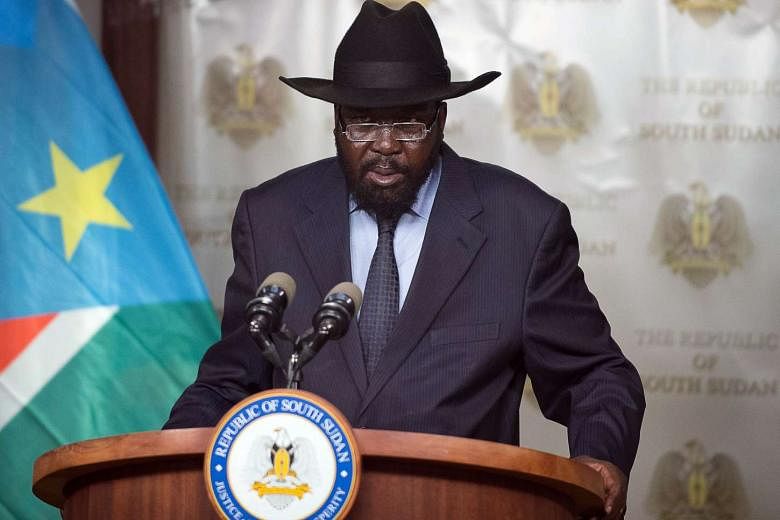NAIROBI (Reuters) - Forced cannibalism, mutilation of bodies, conscription of child soldiers and other human rights abuses have marked the war in South Sudan and may amount to violations of international law, an African Union (AU) report said on Wednesday.
Fighting broke out in the world's youngest nation in December 2013, less than three years after it won independence from Sudan, between forces loyal to President Salva Kiir against those allied with his former deputy Riek Machar.
The conflict in the oil-producing but severely impoverished country, which has often pitted Kiir's ethnic Dinka community against Machar's Nuer people, has killed over 10,000 people and displaced more than 2 million.
The United Nations said earlier this month that starvation conditions afflicted parts of the country, affecting some 30,000 people, and that South Sudan faced a concrete risk of famine by the end of 2015.
Under mounting international pressure and the threat of sanctions, Kiir and Machar signed a peace deal in August but both sides have since accused the other of further attacks.
The report by the AU Commission of Inquiry on South Sudan was completed in late 2014 and made public on Wednesday.
The commission found cases of "extreme cruelty" in the capital Juba that included "mutilation of bodies, burning of bodies, draining human blood from people who had just been killed and forcing others from one ethnic community to drink the blood or eat burnt human flesh".
The report cited "reasonable grounds to believe that acts of murder, rape and sexual violence, torture and other inhumane acts of comparable gravity, outrages upon personal dignity, targeting of civilian objects and protected property, as well as other abuses, have been committed by both sides..."
The report did not state who it believed was responsible, but said the abuses it had documented "may amount to violations of international humanitarian law".
Asked for comment, South Sudan presidential spokesman Ateny Wek Ateny said the government had "acknowledged that some individuals have taken the law into their own hands".
He said the cabinet would meet on Friday and issue a more specific response to the report. "We will not allow impunity," he added.
Officials with rebel forces could not immediately be reached for comment.
The United States and other powers have warned that those behind atrocities in South Sudan should be held accountable for their crimes. Washington and Brussels have imposed sanctions on commanders on both sides.
The AU report found that most of the atrocities were carried out against civilians and that tensions remained high in the three areas hardest-hit by the fighting - oil-rich Upper Nile and Unity states, and Jonglei state.
The report recommended the creation of an "African legal mechanism" to bring accused persons to justice, and the creation of a South Sudan reparations fund, among other steps.

